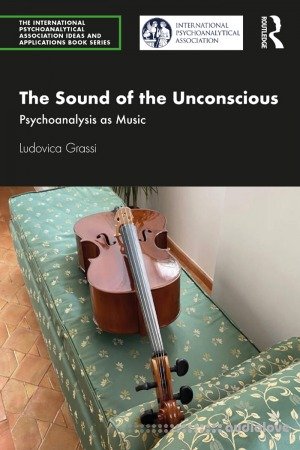The Sound of the Unconscious

English | ISBN: 036764553X | 2021 | 158 pages | PDF | 3 MB
In this book, Ludovica Grassi explores the importance of music in psychoanalysis, arguing that music is a basic working tool for psyche, as words are composed of sound, rhythm and intonation more than lexical meaning.
Starting from ethnomusicological, evolutionary, neurodevelopmental, psychological and psychoanalytical perspectives, the book explores music’s symbolic status, structure and way of operating compared to unconscious psychic functioning. Extraordinary similarities are revealed, especially in mechanisms such as repetition, imitation, variation (transformation), intimacy and the work of mourning, of the negative and of nostalgia. Moreover, silence and absence are essential components of music as well as of psychic and symbolic functioning. Time and temporality are specifically investigated in the book as key elements both in music and in symbolization and subjectivation processes. The role of the word’s phonic kernel and of the voice as fundamental links to emotions, the body, the sexual and the infantile has promising implications for psychoanalytic work. All these elements find an articulation in the natural as well as complex activity of listening, which conveys a tri-dimensional and polyphonic dimension of the world, so important both in music and in psychoanalysis.
Illuminating the link between music and analysis in new and contemporary ways, The Sound of the Unconscious explores the resulting advances in theory and clinical practice and will be of great interest to practicing and training psychoanalysts and psychotherapists.
home page
Starting from ethnomusicological, evolutionary, neurodevelopmental, psychological and psychoanalytical perspectives, the book explores music’s symbolic status, structure and way of operating compared to unconscious psychic functioning. Extraordinary similarities are revealed, especially in mechanisms such as repetition, imitation, variation (transformation), intimacy and the work of mourning, of the negative and of nostalgia. Moreover, silence and absence are essential components of music as well as of psychic and symbolic functioning. Time and temporality are specifically investigated in the book as key elements both in music and in symbolization and subjectivation processes. The role of the word’s phonic kernel and of the voice as fundamental links to emotions, the body, the sexual and the infantile has promising implications for psychoanalytic work. All these elements find an articulation in the natural as well as complex activity of listening, which conveys a tri-dimensional and polyphonic dimension of the world, so important both in music and in psychoanalysis.
Illuminating the link between music and analysis in new and contemporary ways, The Sound of the Unconscious explores the resulting advances in theory and clinical practice and will be of great interest to practicing and training psychoanalysts and psychotherapists.
home page
Only registered users can see Download Links. Please or login.


No comments yet